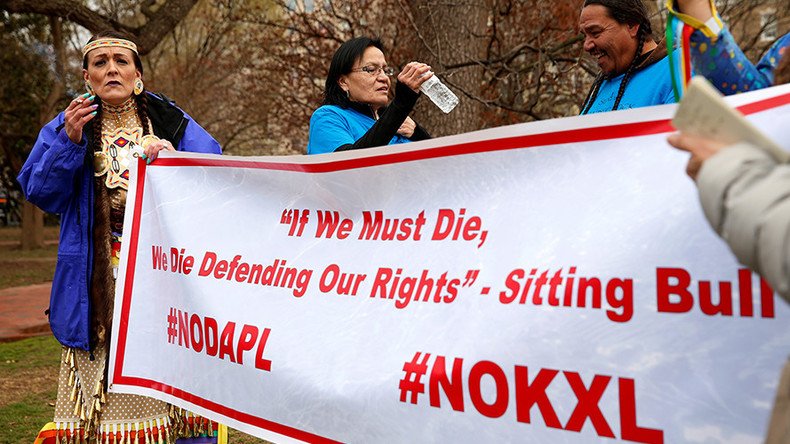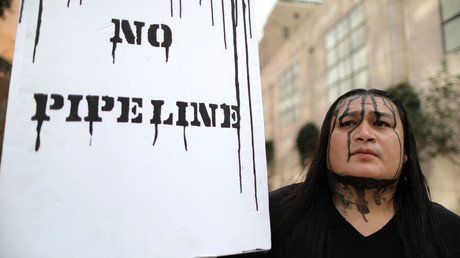Environmental groups launch legal challenge against Keystone XL pipeline

The controversial Keystone XL pipeline which was approved by the US State Department last week is now subject to a legal challenge from a coalition of environmental groups opposed to the project.
The TransCanada Corp-owned pipeline will link Canada’s heavy oil sands with oil refineries in Texas and had been blocked numerous times throughout the permit process, most notably by former President Barack Obama.
However, President Donald Trump overturned Obama’s rejection of the project, claiming that it will create more jobs and reduce the US’s dependence on foreign oil.
Though the project has been given the president's seal of approval, there is still a substantial amount of red tape for TransCanada to cut through before the pipeline can be completed.
The Canadian company still needs state permits from Nebraska, Montana and South Dakota through which the pipeline will run. They now also have to contend with this legal challenge filed Thursday.
Environmental groups that have opposed the project from the beginning are now sticking to their guns.
“We’ve stopped the toxic Keystone XL Pipeline once, and we will do it again,” Dallas Goldtooth of the Indigenous Environmental Network said in a statement, adding that the Trump administration should “expect far greater resistance than ever before.”
A plethora of environmental groups filed the legal challenge in Montana claiming that more environmental scrutiny is needed. They are concerned that the pipeline could potentially contaminate ground and surface water.
The groups include the Center for Biological Diversity, Bold Alliance, Friends of the Earth, Northern Plains Resource Council, Natural Resources Defense Council and the Sierra Club. The coalition say that an environmental review of the pipeline, completed in 2014, is inadequate and outdated and that it minimizes or ignores significant environmental impacts of the project.
#DAPL vandalized in two states – officials https://t.co/3MYA3yvC3B#NoDAPLpic.twitter.com/MK8YJjBnDI
— RT America (@RT_America) March 21, 2017













